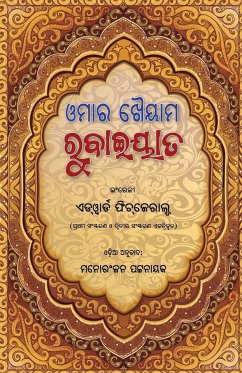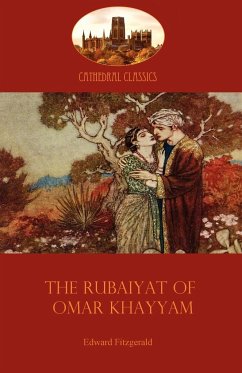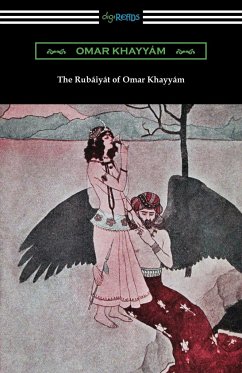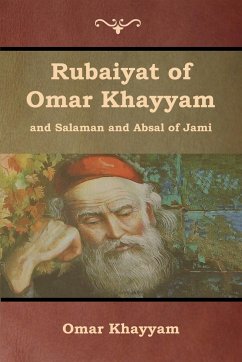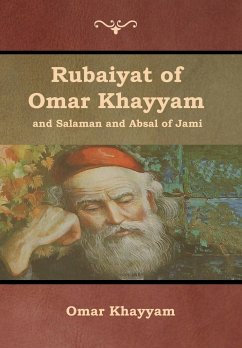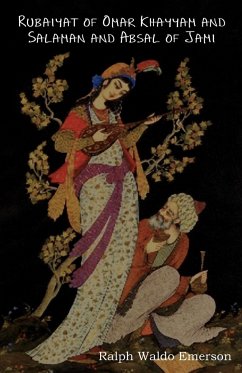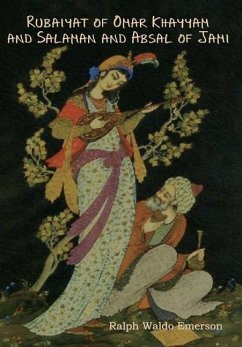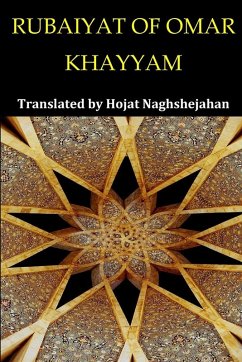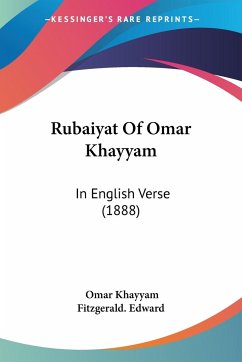
Rubaiyat Of Omar Khayyam
In English Verse (1888)
Versandkostenfrei!
Versandfertig in 1-2 Wochen
22,99 €
inkl. MwSt.

PAYBACK Punkte
11 °P sammeln!
Omar Khayyam was a Persian astronomer and mathematician born in the later part of the 11th century. His poetry, which received very little notoriety in its day, achieved classic status when it was discovered and rendered into English verse by Edward Fitzgerald more than 700 years later. Presented here are the traditionally collected first and fifth editions with the original notes and Introduction by Fitzgerald.
Rubaiyat of Omar Khayyam: In English Verse (1888) is a collection of poems originally written by the Persian poet and mathematician Omar Khayyam in the 11th century. This particular edition of the Rubaiyat has been translated into English verse by Edward FitzGerald. The poems are written in the form of quatrains (four-line stanzas) and explore themes such as love, mortality, and the meaning of life. The translator, FitzGerald, was heavily influenced by the Romantic movement and his translation reflects this with its emphasis on the beauty and transience of life. The Rubaiyat has become a classic of English literature and is widely regarded as one of the greatest works of poetry in the English language.And A Biographical Preface.This scarce antiquarian book is a facsimile reprint of the old original and may contain some imperfections such as library marks and notations. Because we believe this work is culturally important, we have made it available as part of our commitment for protecting, preserving, and promoting the world's literature in affordable, high quality, modern editions, that are true to their original work.



